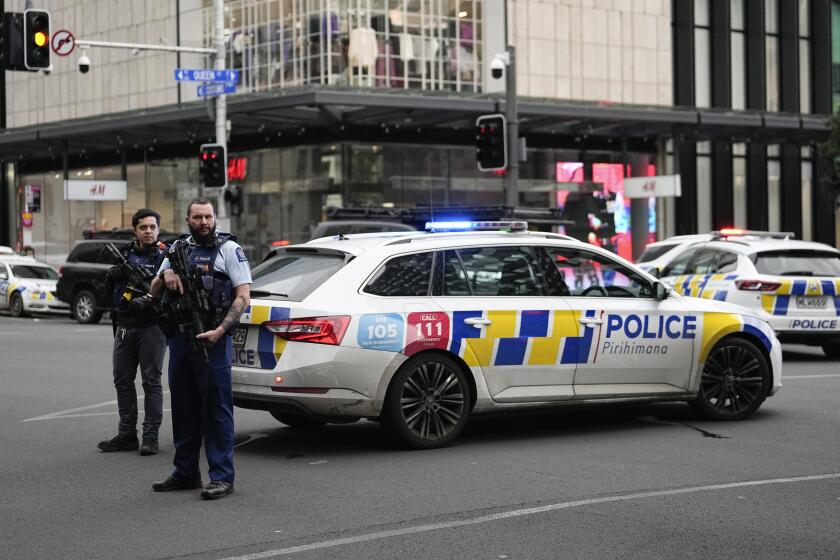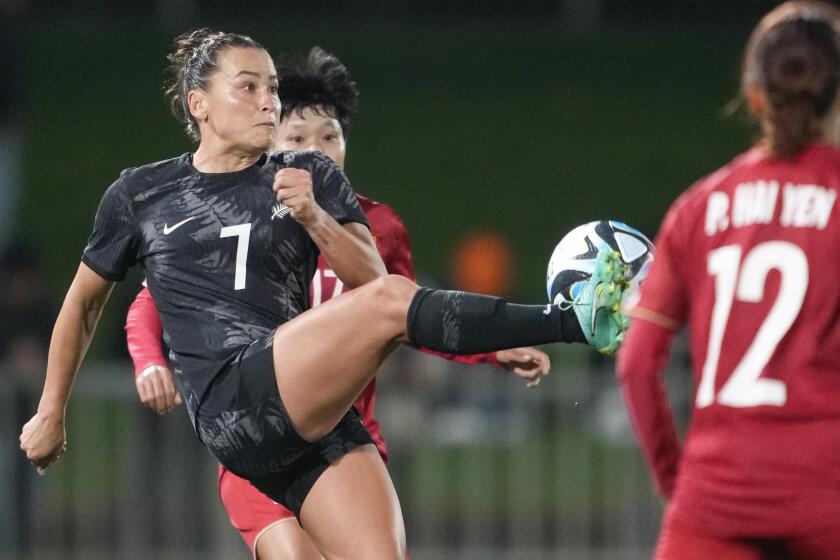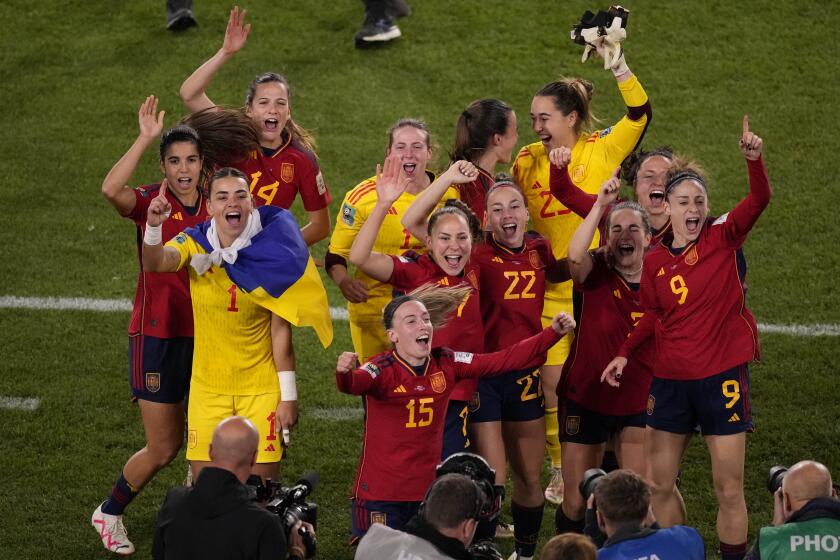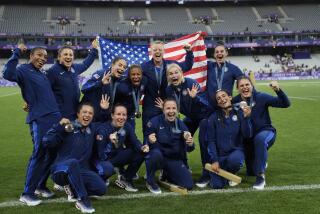In the wake of a mass shooting in Auckland, New Zealand scores historic Women’s World Cup win
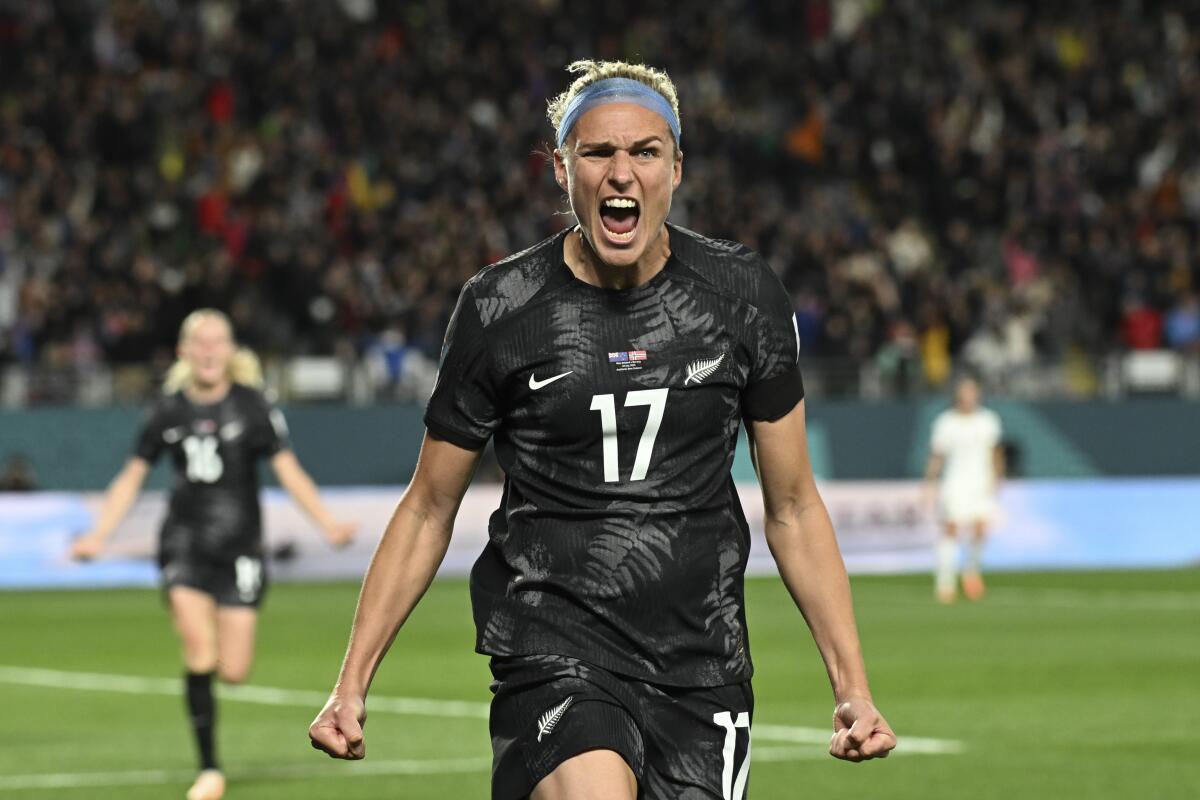
- Share via
AUCKLAND, New Zealand — The Women’s World Cup opened with pomp despite the circumstances Thursday, kicking off less than 12 hours after a mass shooting in Auckland’s scenic harbor district.
So while there were fireworks and dancing and singing before the game at Eden Park Stadium, about three miles from where a lone gunman killed two and wounded at least 10 others, there was also sadness, mourning and a long moment of silence, one the players and staff on New Zealand’s bench observed by leaving their dugout and standing, heads bowed and arms draped over one another’s shoulders, under skies that were appropriately dark and heavy.
Eventually, they started the soccer match and that’s where things took a turn, with Hannah Wilkinson’s goal less than three minutes into the second half giving New Zealand a historic 1-0 win over Norway.
“There was a lot of emotions tonight,” New Zealand coach Jitka Klimkova said. “It meant so much for them, seeing tears in their eyes, enjoying it with their families. It was an incredible moment for me as a coach and I will never forget it.”
U.S. Soccer says its delegation is safe after a shooting in a building near the New Zealand World Cup fan zone. Three people were killed, police said.
If mass shootings are rare in New Zealand, and Thursday’s was just the second this century, World Cup wins are even rarer. The Football Ferns, as the women’s team is known, had never won a game in five previous trips to the World Cup and they were given no chance against Norway, a former champion ranked 12th in the world. But the team wasn’t playing for itself this time. Before a crowd of 42,137 — more than three times the previous record for a women’s soccer match in New Zealand — the Ferns were playing for their grieving nation. And that made all the difference.
“We put so much pressure on ourselves because it wasn’t just about winning the game,” said a tearful Ali Riley, New Zealand’s captain. “This is about inspiring our entire country and with what happened, trying to do something positive to honor the first responders. That’s a lot. And I think we did it.”
Added forward Gabi Rennie: “It was something that kind of brought us together. We’re doing this for so much more than ourselves. We’re doing this for our country.”
The night was meant to be one of celebration, marking the start of the largest women’s sporting event in history with 32 teams and 64 games. It is the first Women’s World Cup to be played in the Southern Hemisphere and the first shared between two nations.
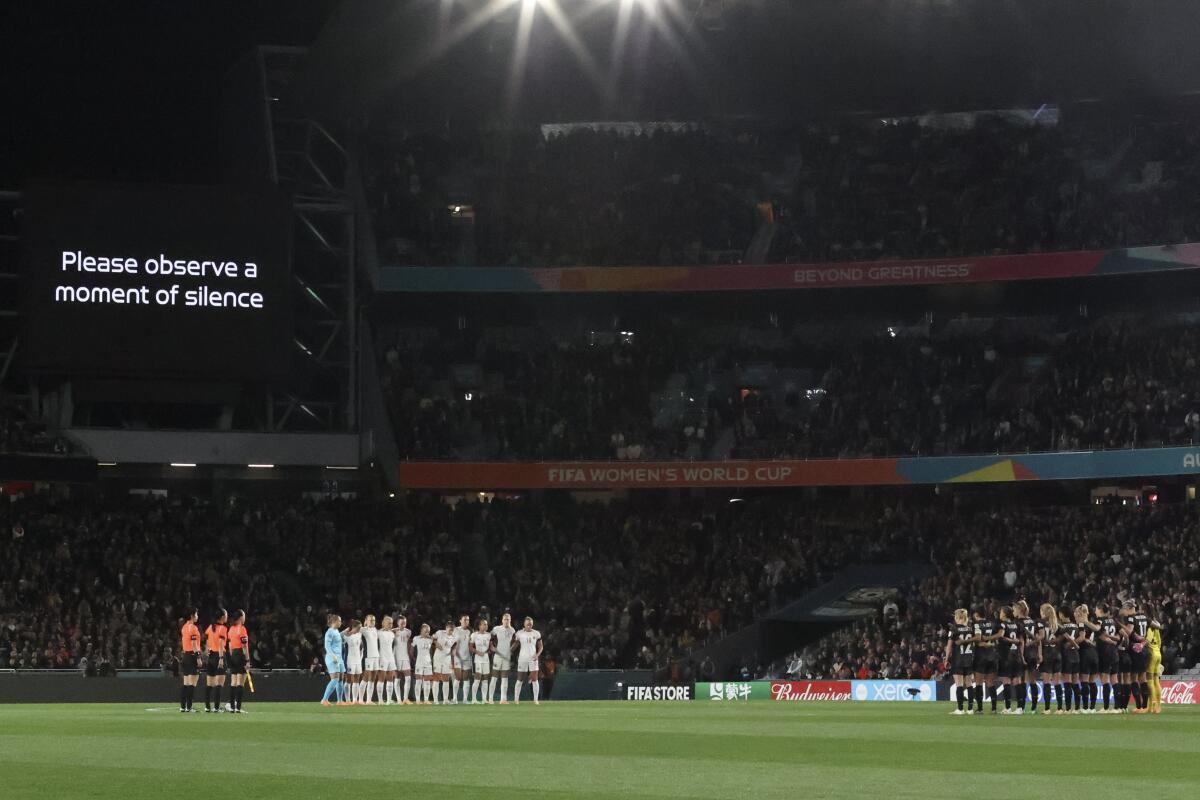
And while, after some debate, things went on as scheduled — co-host Australia beat Ireland 1-0 in its opener in Sydney, which also began following a moment of silence — the tournament will be forever scarred by the actions of 24-year-old Matu Tangi Matua Reid, who opened fire at a construction site with a pump-action shotgun. Reid was wearing an electronic tracking device on his ankle after being sentenced in March on domestic violence charges, but he had an exemption to his home detention that allowed him into the construction site, where he worked. He died there after a shootout with police.
A FIFA Fan Festival, scheduled to open Thursday afternoon a few hundred yards from the shooting site, remained closed.
“Obviously we would prefer it not to have started in this way,” New Zealand Prime Minister Chris Hipkins said.
But when the pregame moment of silence ended, the somber crowd turned joyous, cheering, chanting, even doing the wave.
“I have never experienced anything like that, especially playing in New Zealand. So it was awesome. We couldn’t have done it without them,” defender Catherine Bott said of the crowd. “What happened this morning was devastating. It’s news no one wants to wake up to.
“It definitely motivated us. I hope we can bring some joy to Kiwis.”
The biggest moment of joy came in the 48th minute, when Wilkinson ran on to a long cross from Jacqueline Hand on the edge of the six-yard box and spun a right-footed shot past Norwegian keeper Aurora Mikalsen. The goal was just New Zealand’s second in its last four World Cup games and the lead was its first since the final group-stage match in 2015.

Ria Percival had a chance to double that advantage in the 89th minute after Norway’s Tuva Hansen was called for a handball just inside the area. But she drove her penalty shot off the right upright, leaving the crowd to wait out a nervous nine minutes of stoppage time that made one of New Zealand’s longest days seem even longer.
When referee Yoshimi Yamashita finally blew her whistle, a couple of New Zealand players dropped to the pitch in exhaustion and disbelief while others gathered for group hugs.
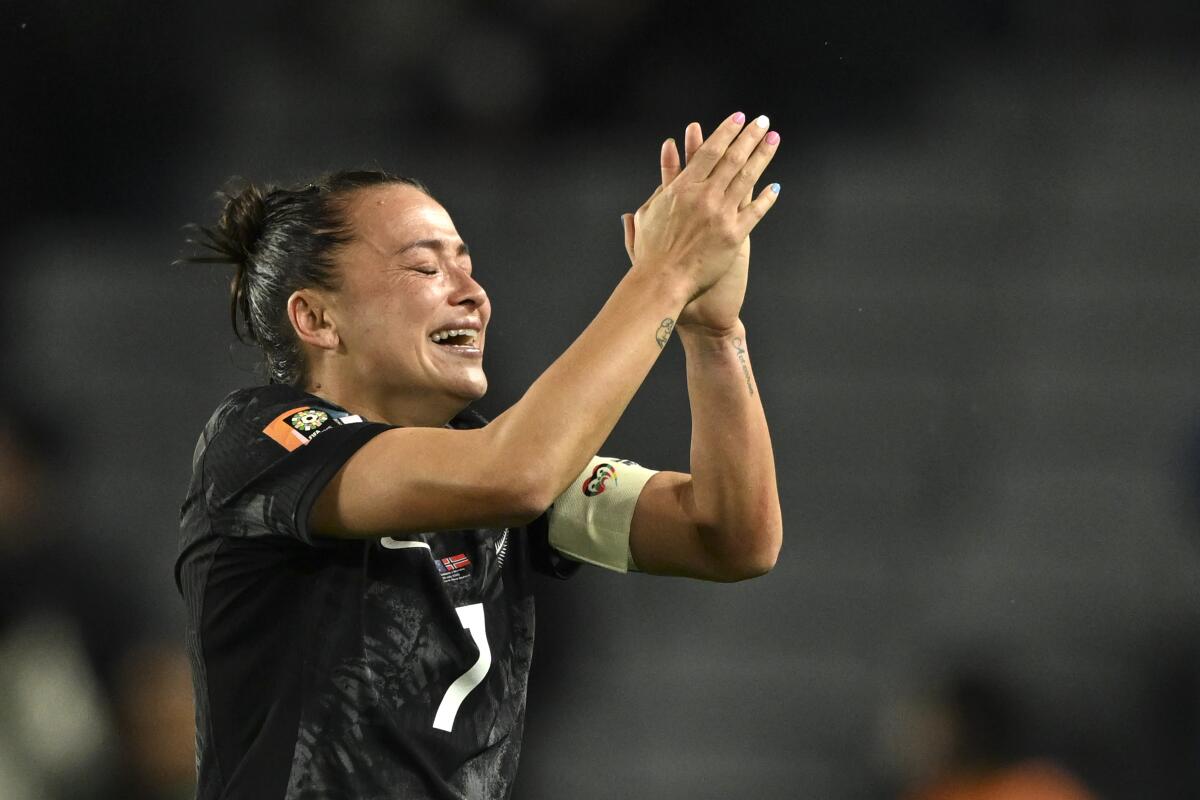
In the stands the crowd, which had been on its feet for some time, stayed there. This was no time to worry about beating traffic.
“The crowd kept us going the entire time,” Riley said. “The energy was electric, especially at the end. We talked about having that energy, having that 12th woman supporting [us].”
Playing for host nation New Zealand in the 2023 Women’s World Cup will be a “culmination of so many milestones” for Angel City FC standout Ali Riley.
Afterward Hipkins, who started his day with an emotional address at a news conference near the Auckland harbor, ended it in the national team’s dressing room, where he and former Prime Minister Jacinda Ardern posed for pictures, danced and celebrated with the players, whose resilience had inspired a nation.
And vice versa.
“After what happened this morning, obviously the prime minister was speaking to that and offering his condolences. And to go from that to bringing his niece to our game,” Riley said. “You know, I think we as a team, even when there’s been doubt around us, we believe in ourselves.
“But to have that kind of support of them, of the crowd, it just gives you even more energy.”
No matter the circumstances.
Complete coverage of the 2023 FIFA Women’s World Cup in Australia and New Zealand from the Los Angeles Times.

